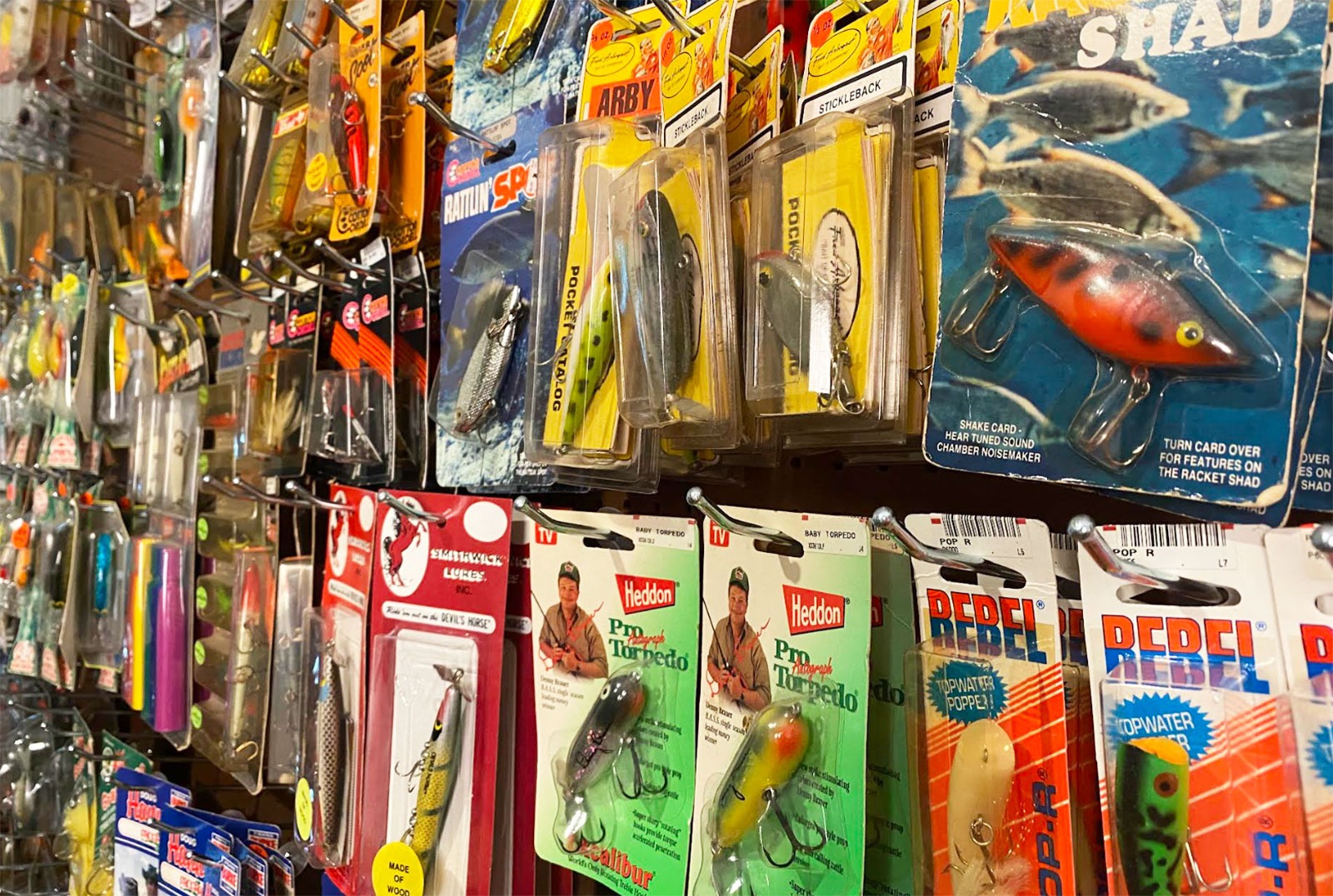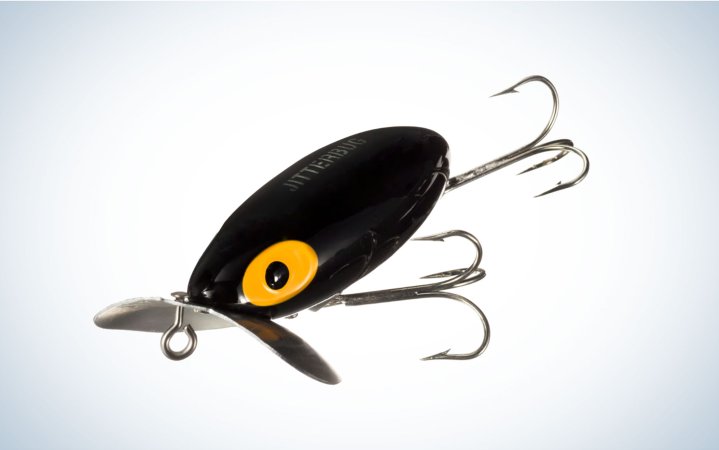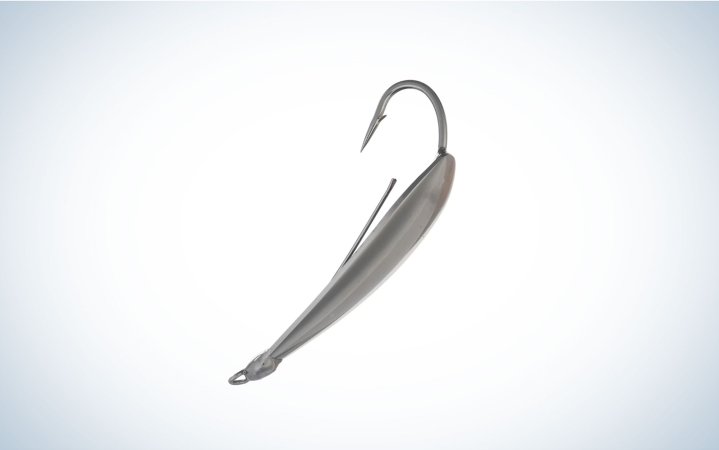We may earn revenue from the products available on this page and participate in affiliate programs. Learn More ›
The fishing world is one of trends. At any given time, tackle manufacturers are toiling away to bring new, exciting, and often expensive lures to market. Thanks to the power of social media, our feeds can be easily inundated with the “hottest” new products and techniques. In many cases, newer is, in fact, better. Take the introduction of Gary Yamamoto’s Senko as an example. It proved to be one of the most potent bass lures ever created and because of this, the baits (and wacky rig fishing in general) are standing the test of time. Meanwhile, countless other lures get their moment in the spotlight then seem to fade away.
For a time, though, if you’re not fishing these trendy new baits, you’re not one of the cool kids. This is especially true in the bass fishing world. The reality is that nothing beyond a lure’s ability to produce should matter, but fishermen are now and always will be suckers for the shiny new thing. In order to shine some light on old, underrated, and affordable bass baits, I sat down with Chris Bohlman for the first episode of my new Quick Strike podcast.
Bohlman is the host and curator of the Retro Bassin’ YouTube channel, and his content focuses on bass lures and tackle from the 80s and 90s. He grew up in this era and has a soft spot for the gear that Bill Dance, Hank Parker and many others he considers idols were showing him on Saturday morning fishing shows. Not only does nostalgia drive him to produce videos covering everything from forgotten lures to the history of classic colors, but he also longs for a time when bass fishing wasn’t so expensive. It was an everyman’s sport and for a couple bucks, you could grab a few lures and be successful.
Even today, Bohlman targets bass in a vintage boat rigged with antique electronics and he throws all the baits he’s been using since he was a kid. I asked Bohlman to peg what he considers the three most overlooked bass lures on shelves today. None of them are trendy, but if you don’t care about being a cool kid, they’ll catch you a lot more fish.
Spinnerbaits
Spinnerbaits were staples in bass angler arsenals for many decades. There are still tons in production of course, but they’ve largely taken a backseat to the Chatterbait. Chatterbaits feature a lead-head jig with a flowing, rubber skirt tail. In front of the head there’s a hexagonal metal lip. During a steady retrieve, that lip causes the lure to shimmy, shake, and vibrate, which—no doubt—drives bass wild. According to Bohlman, however, the problem with a chatterbait is it’s a one-trick pony.
“I like a ChatterBait, but I’m personally much more confident and much more versatile with a spinnerbait,” Bohlman says. “I can wake it on top. I can slow-roll it. I can flip a spinnerbait. You can finesse a spinnerbait in many ways whereas a chatterbait really only performs when you’re chunking and winding.”
Bohlman also noted that bass will hit a spinnerbait on the fall, as the blade will twirl like a helicopter during the descent, making it effective in deep and shallow water. While all the various styles of spinnerbait still on the market hammer bass, one of his personal favorites is a single Colorado blade model. This one, he says, has fallen far out of popularity, but it was a favorite of the old-school pros and that lone wide blade thumping away still fools monster bass today.
Arbogast Jitterbug
According to Bohlman, the first bass ever caught by the legendary Bill Dance—long before he became a professional angler—fell to an Arbogast Jitterbug. These gurgling, waking topwater lures are true classics and they’ve been in production for almost 80 years. However, as Bohlman puts it, “you would be laughed off the Googan Squad so quickly if you actually broke out a Jitterbug in a professional tournament today.”
The Jitterbug ultimately spawned an entire lure category known as crawling topwaters. Today, these come in a variety of shapes and sizes, mimicking everything from bats to rats, and these updated iterations remain trendy and popular. But the original is largely viewed as “grandpa’s lure” today, which is a shame. The Jitterbug’s heart-shaped metal lip was revolutionary when it first hit the scene. During a steady retrieve, the lure would waddle, causing each side of the lip to slap the water at a fast rate. The result was a unique gurgling sound, and the creation of a bubbly V-wake bass can follow to the lure. Though a Jitterbug can conjure explosions at any time of day, it’s particularly lethal in low light or after dark.
“I don’t know if people realize just how old the Jitterbug is,” says Bohlman. “They came out in 1939 and were originally made of wood. The company switched over to plastic in 1958 and my all-time favorites are from the “Seeing Is Believing” line that came out in 1978. They were painted to look like chipmunks and red winged black birds. Those models are very collectible.”
Johnson Silver Minnow
Almost every angler in the world understands that simple spoons have been around forever because they catch piles of fish. Yet, despite this understanding, you don’t see many bass anglers winging a spoon around the lake these days. While there are loads of spoons on the market, Bohlman points to the Johnson Silver Minnow as the long-forgotten sleeper that is positively deadly on largemouths.
Read Next: Why the Spoon Is One of the Best Lures of All Time
Though this lure has never fallen out of popularity with Southern anglers targeting salty redfish and seatrout, it was originally intended to pluck bass out of veggie-laden ponds and lakes. Featuring a single hook soldered to the body and a built-in weed guard, the Silver Minnow could be ripped through grass or flipped between lily pads and come out clean. Simple in design, it could be reeled quickly or simply allowed to flutter and wobble down, where it would routinely get inhaled on the fall. Silver Minnows could also be tipped with a variety of soft-plastic lures to increase action and vibration even more.
“Where I live in Florida, a lot of the locals still fish the Silver Minnow,” says Bohlman. “But they don’t talk about it a ton. What’s interesting is the favorite local color is black. Everyone knows the gold and silver, but the black is still metallic, it’s just muted and a bit less shiny. On overcast days or when the fish are a little bit spooky, that black color gets them.”
About the Quick Strike Podcast
New episodes of Quick Strike will drop every other week on Apple, Spotify, and anywhere else you get your podcasts. I’ll cover fishing tips and tactics from the bass pond to the trout stream, salty back-bay flats to the Gulf Stream. So, if you’re looking to up your fishing game with surprising ideas, practical tips, and compelling angling insight without having to wade through all the filler of long-form podcasts, make sure to give us a follow.




